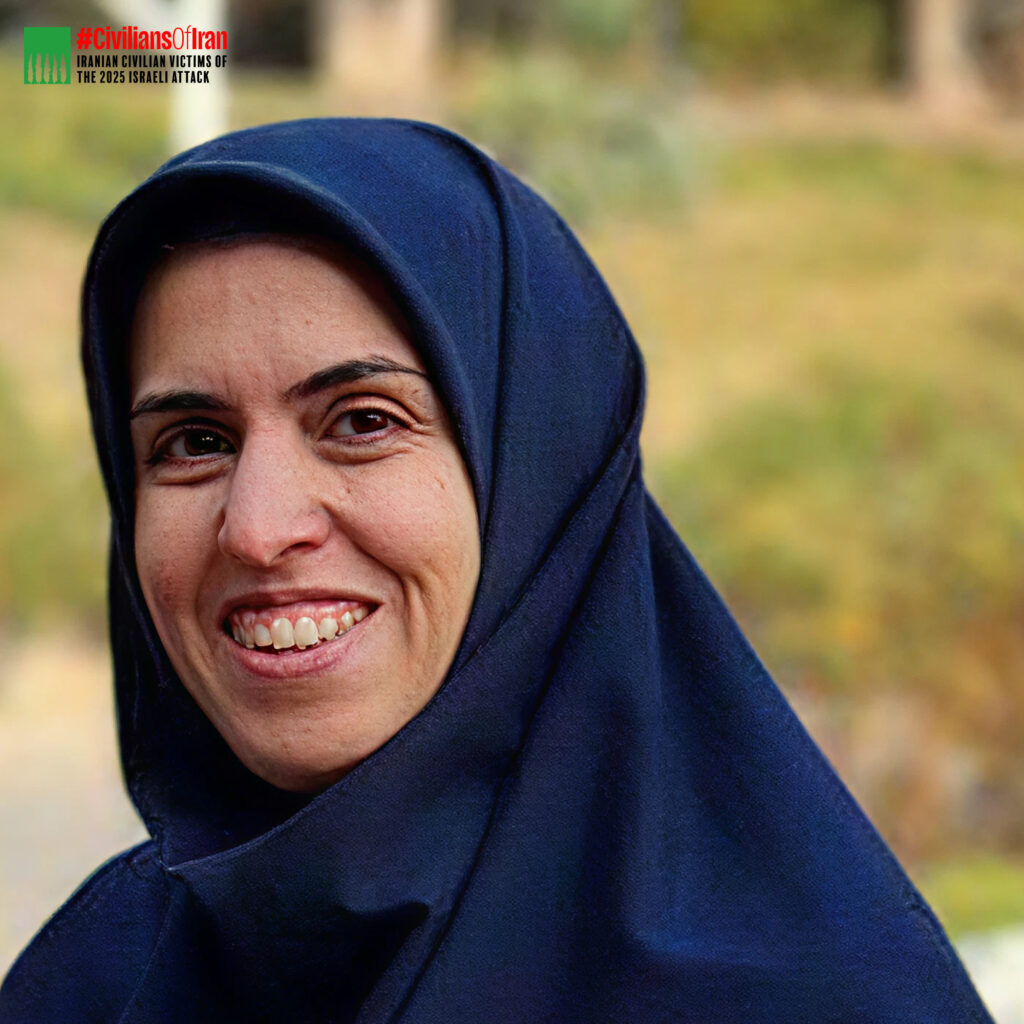Neda Rafiei Parsa, a 42-year-old university professor and senior manager at Tavanir Company, was killed on July 2nd by the blast wave of an attack while at her workplace. She held both her bachelor’s and doctoral degrees in GIS engineering and statistics from Amirkabir University.
A colleague described her as one of the exceptional minds of her generation:
“Neda Rafiei Parsa belonged to the elite cohort of the 1980s generation. She entered the energy industry through the elite quota system and was deeply committed to her work and expertise. That same sense of responsibility led her to voluntarily report to work on July 2nd, even though only 30 percent of employees in Tehran’s executive agencies were expected to be present.”
She continued:
“On Saturday and Sunday—June 29th and 30th—it was recommended that only a minimal number of staff be physically present at Tavanir. We assumed Monday, July 2nd, would be calmer. So, a smaller team of strategic and essential personnel came in. At 11:15 a.m.—the time of the explosion—we were moving computers and vital equipment because the Shahid Ghasemi Tavanir building had already been damaged. Ms. Rafiei Parsa had come in voluntarily to assist with the relocation and to help make important data and files available to remote-working colleagues.”
Recounting the moments of the attack, her colleague said:
“When the sound of the first explosion rang out, we rushed everyone outside. While we were lying on the ground near the outer walls, someone suddenly shouted, ‘Ms. Parsa is still inside!’ I ran back into the building, calling her name, but heard no response. She wasn’t in her room, and I feared she might have been thrown by the blast wave. I searched further and finally found her lying on the floor in another room, bleeding heavily. The building had been hit directly and violently. Emergency services arrived soon after, but it was too late.”


